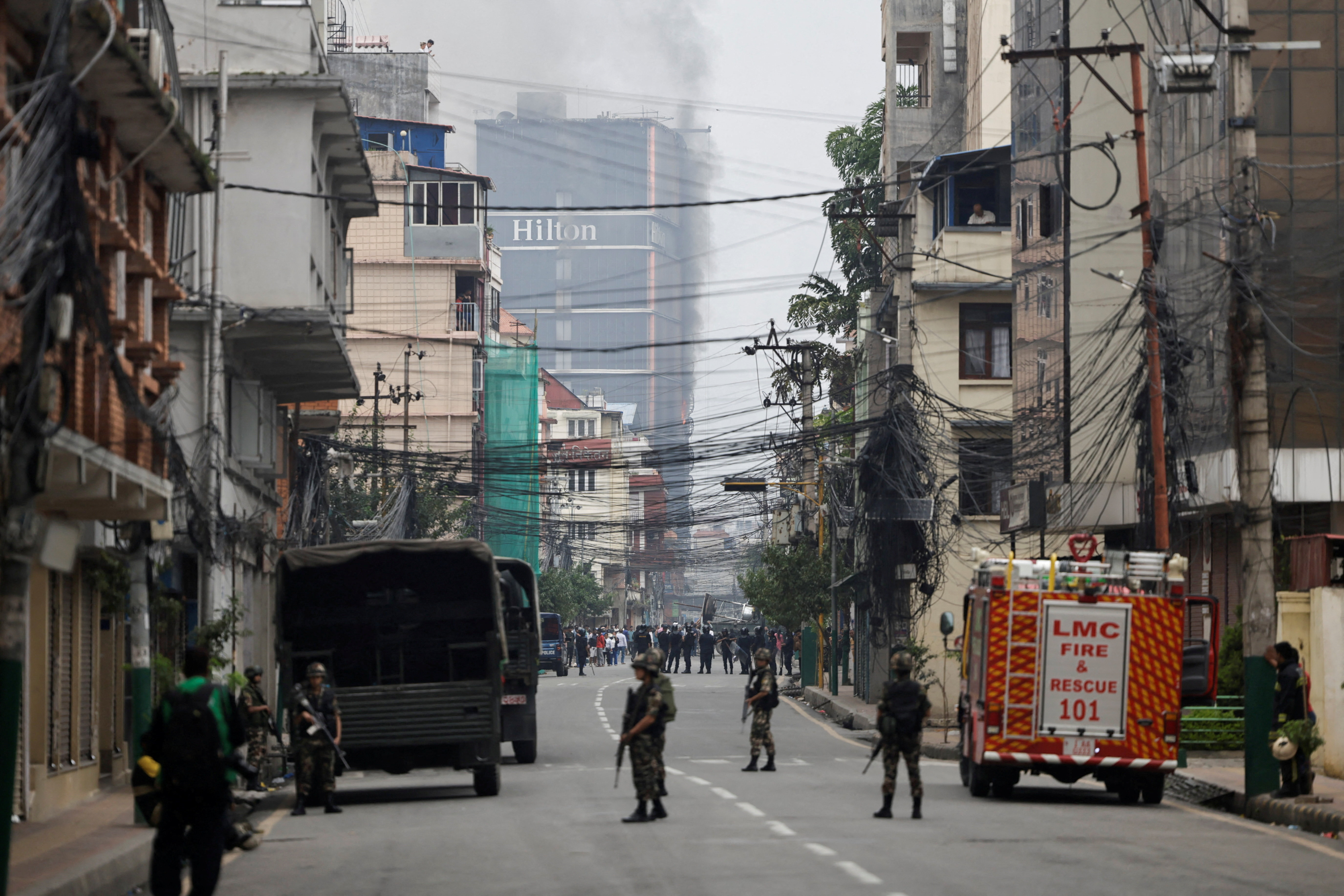By Tass
Copyright tass

NEW DELHI, September 9. /TASS/. The Nepalese army along with other security services have deployed troops to the cities gripped by riots, where looting and vandalism continue, the Khabarhub news portal said, citing the army press service.
“Certain groups are using the unrest to do harm both to civilians and government property,” it said in a statement. The Military has called on people to show restraint and cooperate with security forces to prevent further tumult.
Upheavals after anti-government protests have been raging in the Nepalese capital and other cities for a second day. Prime Minister Sharma Oli has stepped down. Protesters set fire to a number of government buildings, including the parliament, Supreme Court, prosecutor’s office. Attacks on politicians and officials’ residences were reported. Former Prime Minister Jhala Nath Khanal’s wife died after such an attack.
The riots were precipitated by the Nepalese government’s September 4 decision to restrict access to Facebook, Instagram, WhatsApp (social media sites banned in Russia since they are owned by Meta corporation classified as extremist by the Russian authorities) as well as other social networks that were not registered with the Communication and Information Technology Ministry within the required timeframe. On September 8, mass protests involving thousands of demonstrators began in Kathmandu and several other major cities in Nepal. The protesters, most of them being students and activists from the Gen Z youth movement, opposed the government’s measures. An indefinite curfew was declared in the capital city. The clashes claimed more than 20 lives, leaving more than 500 injured. The authorities lifted all the restrictions on September 9 amid continuing protests.
Although the protests had no official leaders, Hami Nepal Chairman Sudhan Gurung is said to be their main instigator. The organization advocates youth participation in social reform and opposes internet censorship and corruption
Nepal is a small Himalayan country with a population of around 30 million. Its economy rests largely on farming, tourism, and money transfers from the Nepalese working abroad. The country depends on India and China. Along with unemployment, the country’s economy suffers from natural calamities, such as earthquakes and floods.



